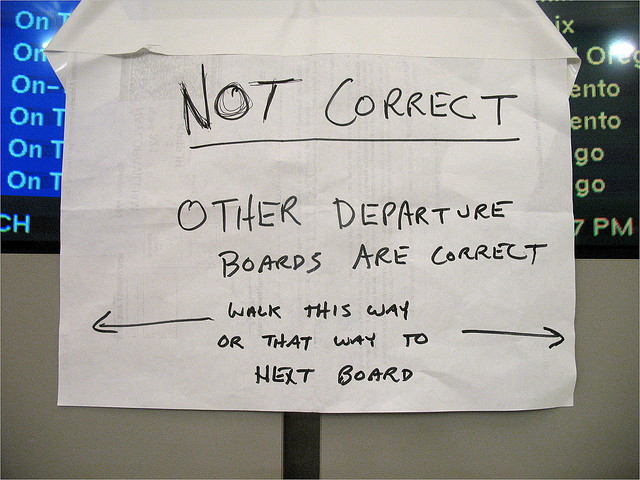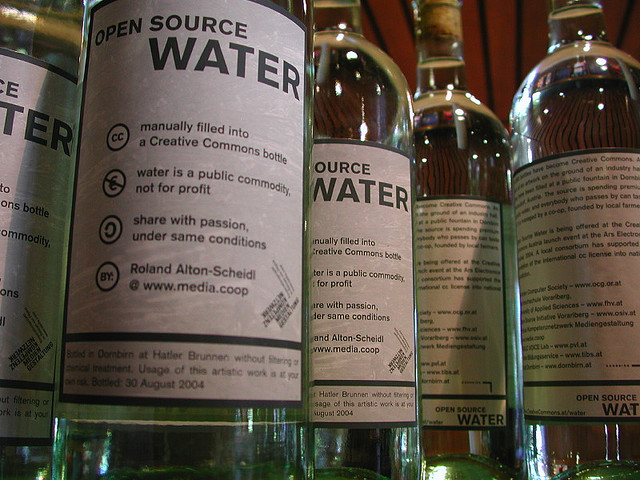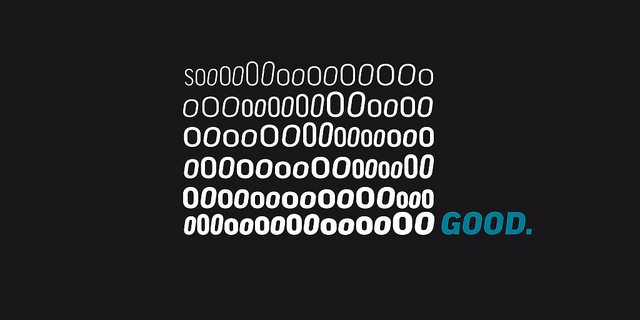
What is wrong with the following sentence?
To solve the problem of global warming, you have to develop a strategy to limit the amount of greenhouse gases that are released into the atmosphere by the burning of fossil fuels by the industrialized nations of the world.
The problem with that sentence involves the use of the personal pronoun you. The word is not being used in its true sense—as a word that is being used to refer to…you, the reader. The intent of the writer of that sentence is to suggest that the industrialized nations of the world, or, more specifically, political leaders and others in positions of prominence, should develop strategies to limit the amount of greenhouse gases that are released into the atmosphere. The writer is not expecting that you, the reader, (or, for that matter, huge numbers of readers, if you is being used as a plural possessive pronoun) will be the one to develop a plan to reduce greenhouse gas emissions. The sentence would be more correctly written as follows:
To solve the problem of global warming, political leaders and others in positions of prominence have to develop a strategy to limit the amount of greenhouse gases that are released into the atmosphere by the burning of fossil fuels by the industrialized nations of the world.
Or, the writer could have written:
To solve the problem of global warming, you, as citizen of the world, have to develop a strategy to limit the amount of greenhouse gases that are released into the atmosphere by the burning of fossil fuels by the industrialized nations of the world.
That would solve the problem of the use of the personal pronoun you, although the logic of an individual being able to solve a complex problem such as that involving greenhouse gases is weak.
The point of this discussion is the use of personal pronouns in academic papers. In general, in academic writing, it is not appropriate to refer to the reader or to the writer directly. The writer should, as much as possible, maintain distance between him or herself and the reader, and, for that matter, to the subject under discussion. The essay, report, or research paper should appear to have been written by an impersonal writer who is not directly addressing the reader. Therefore, the following pronouns should not be used, except in particular instances: you, we, I, me, and our.
This, of course, does not apply to journals, sections in research reports in which the writer discusses his or her involvement in the subject, portions of a document in which it is necessary and appropriate to directly address the reader, or in more informal types of writing.
In general, it is customary for the writer of an academic document to distance himself or herself from both the subject and the audience. That brings us to the problem of the passive voice, which college instructors warn against. The passive voice refers to sentences in which something is done to the subject, rather than the subject doing the something. The following is an example of the use of the passive voice:
Global warming needs to be immediately addressed because, not to do so, will result in climactic and other consequences which will be impossible to correct.
In a piece of informal writing, such as the blog that you are reading or a memo or an email or a letter, the sentence could be written as follows:
You and I should immediately address the problem of global warming because, not to do so, will result in climactic and other consequences which will be impossible to correct.
In a piece of academic writing, however, the way to avoid the passive voice, and still refrain from using personal pronouns, is to name a third party subject, as in the following:
The leaders of all of the nations of the world need to immediately address the problem of global warming because, not to do so, will result in climactic and other consequences which will be impossible to correct.
Remember, as the writer of a piece of academic writing, you (as I said, this blog is a type of informal writing, so I am allowed to use personal pronouns such as you) must distance yourself from both the subject and the audience.









